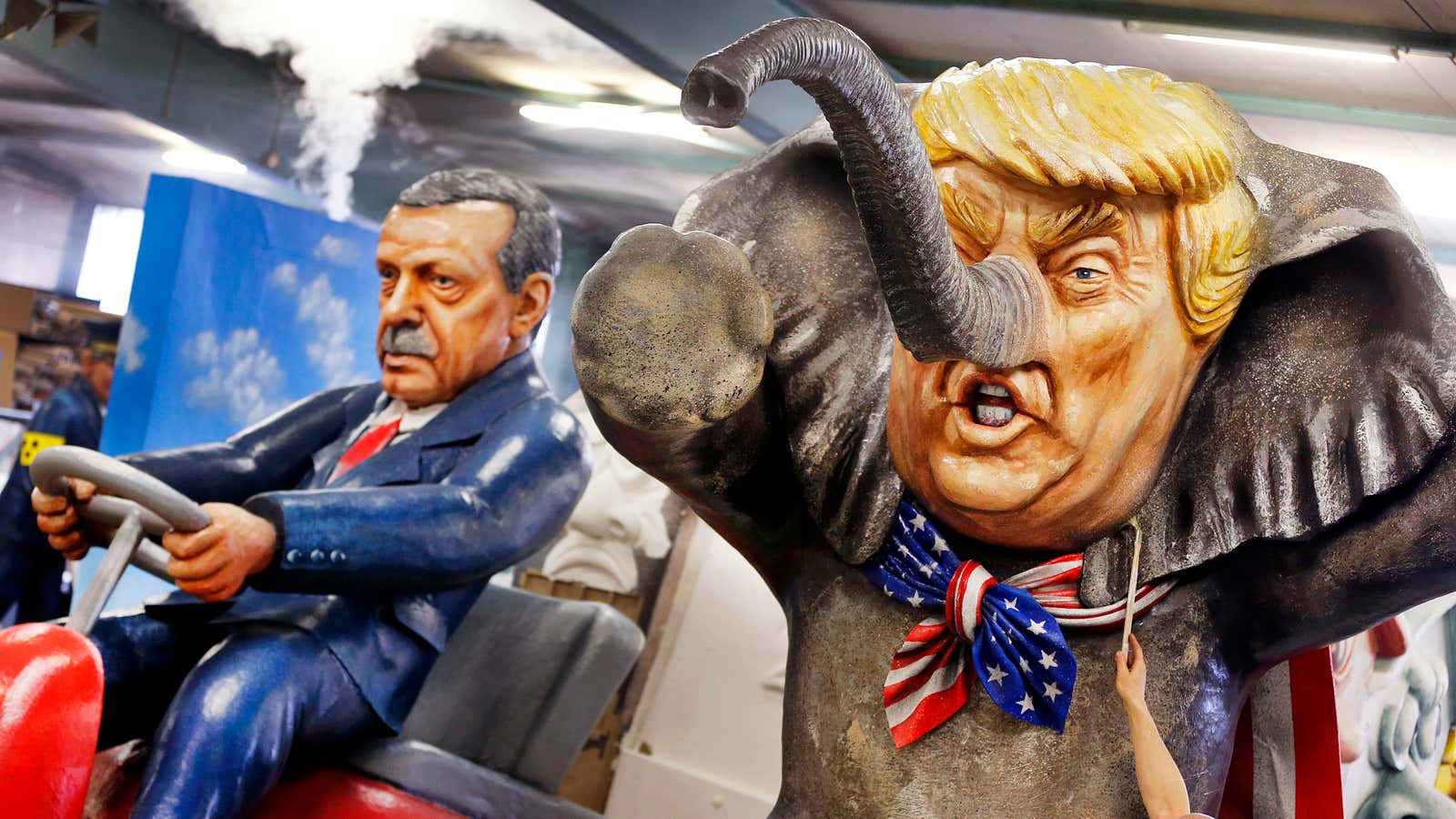For some, last weekend’s Turkish referendum consolidating power under president Recep Tayyip Erdogan was the end of the Turkish republic as the world knows it. US president Donald Trump, however, called Erdogan to congratulate him on seizing control of the governing apparatus, in a vote that passed by a bare majority and was marred by violence, restrictions on the press, and irregular procedures.
Trump’s call was surprising because it came just hours after his State Department had critically noted the reports of “irregularities on voting day and an uneven playing field during the difficult campaign period” and called on the regime there ”to protect the fundamental rights and freedoms of all its citizens—regardless of their vote on April 16.”
Indeed, the tone was so different that many questioned early reports from Turkish news sources about Trump’s call, until the White House confirmed it in a statement late last night.
“President Donald J. Trump spoke today with President Recep Tayyip Erdogan of Turkey to congratulate him on his recent referendum victory and to discuss the United States’ action in response to the Syrian regime’s use of chemical weapons on April 4th,” the statement read—conveniently explaining in one sentence the linkage between Trump’s praise of Erdogan and his desire for a freer hand to deploy US military forces into Syria’s bloody civil war.
According to the White House, the conversation between the two presidents only focused on terrorism, with no discussion of human rights, electoral irregularities or Erdogan’s crackdown on the media. Turkey now jails more journalists than any country in the world.
Contrast that with the statement from German chancellor Angela Merkel, who urged Erdogan to “seek respectful dialogue with all political and social forces in the country, after this tough election campaign” and that the “the close result shows the extent to which Turkish society is deeply divided.”
Diplomatically speaking, statements like Merkel’s are designed to say “we’re watching to make sure there aren’t major human-rights violations to follow this event.” Trump’s statement is a little closer to: ‘I don’t care what you do in your country as long as you cooperate with me during bombing campaigns against your neighbors.’
To be fair to Trump, American administrations have generally been forgiving about the human-rights abuses of their autocratic partner states in the Middle East, from Saudi Arabia to the UAE. But the US has at least maintained a policy of lip-service towards liberal ideals abroad, occasionally matching them with action.
In 2014, for example, when Egyptian strongman Abdel Fattah el-Sisi won power in a controversial election, Obama congratulated him, too. But, according to a White House description of that call, he also discussed US “support for the political, economic, and social aspirations of the Egyptian people, and respect for their universal rights.” Trump, it seems, is scraping away even that veneer of niceties.
